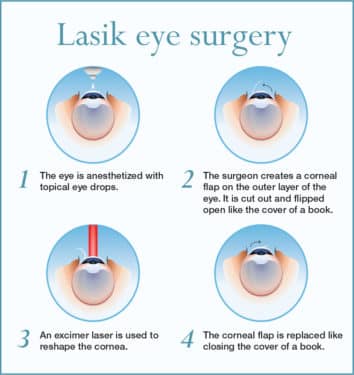Aiding A Family Member With Cataract Surgery: Representations From A Caretaker'S Experience
Aiding A Family Member With Cataract Surgery: Representations From A Caretaker'S Experience
Blog Article
Write-Up Developed By-Lynggaard Jonassen
As a caregiver sustaining a loved one dealing with cataract surgery, your role is essential in guaranteeing their convenience and recovery. From pre-surgery preparations to post-operative care, your presence and aid can make a considerable distinction in their trip. Understanding the emotional and physical obstacles they might encounter, giving functional assistance, and being their pillar of support are key elements in this process. Bear in mind, your role goes beyond just providing aid; it has to do with being a source of strength and comfort throughout a considerable stage in their life.
Comprehending Cataract Surgical Treatment Refine
Discovering the steps involved in cataract surgery can aid alleviate any kind of anxiety or unpredictability you may have concerning the treatment. Cataract surgical treatment is an usual and very effective procedure that involves removing the cloudy lens in your eye and changing it with a clear artificial lens.
Before the surgery, your eye will be numbed with eye decreases or a shot to ensure you don't really feel any pain during the treatment. The cosmetic surgeon will make a tiny laceration in your eye to access the cataract and break it up using ultrasound waves prior to carefully removing it.
Once the cataract is removed, the fabricated lens will be put in its location. The whole surgical treatment typically takes around 15-30 mins per eye and is usually done one eye at once.
After the surgical treatment, you may experience some light pain or obscured vision, however this is normal and should improve as your eye heals.
Preparing for Surgical Treatment Together
To make certain a smooth and worry-free experience, preparing for cataract surgical treatment together can make a considerable distinction in your enjoyed one's journey. Beginning by going to pre-surgery appointments with them. By doing this, you can ask questions, understand the procedure, and offer emotional support.
Help top 10 eye cataract surgery organize their pre-operative directions, medications, and transport to and from the medical center. Ensure and cataract surgery awaits their healing by establishing a comfortable room with simple accessibility to vital products.
Aid them in arranging for post-operative treatment if required, such as help with meals or family jobs. Motivate them to adhere to the physician's recommendations concerning fasting before surgery and medicine procedures.
Reassure them that you'll be there for them every step of the means. By proactively participating in the preparation procedure, you can minimize stress and anxiety and guarantee that your enjoyed one really feels sustained and cared for throughout this crucial time.
Post-Operative Care Tips
After cataract surgical procedure, giving appropriate post-operative treatment is essential for your loved one's healing. Ensure they wear the safety shield over their eye as instructed by the doctor. Help them administer recommended eye declines and medicines on schedule to prevent infection and help healing.
Encourage your loved one to stay clear of touching or rubbing their eyes, as this can result in issues. Help them in complying with any type of limitations on bending, lifting heavy things, or joining laborious tasks to prevent strain on the eyes. Make certain they go to all follow-up appointments with the eye doctor for keeping an eye on progress.
Maintain the eye area tidy and completely dry, avoiding water or soap straight in the eyes. Urge your liked one to wear sunglasses to protect their eyes from bright light and glow throughout the healing procedure. Hold Nv Eye Surgery and supportive as they recuperate, supplying help with everyday tasks as required.
Conclusion
In conclusion, sustaining a loved one through cataract surgical procedure includes being there every action of the means, from pre-surgery preparations to post-operative care. Your emotional support, functional assistance, and encouragement can make a substantial difference in their recovery procedure. By remaining educated, organized, and attentive to their needs, you can help guarantee a successful result and give them with the convenience and reassurance they need throughout this difficult time.
